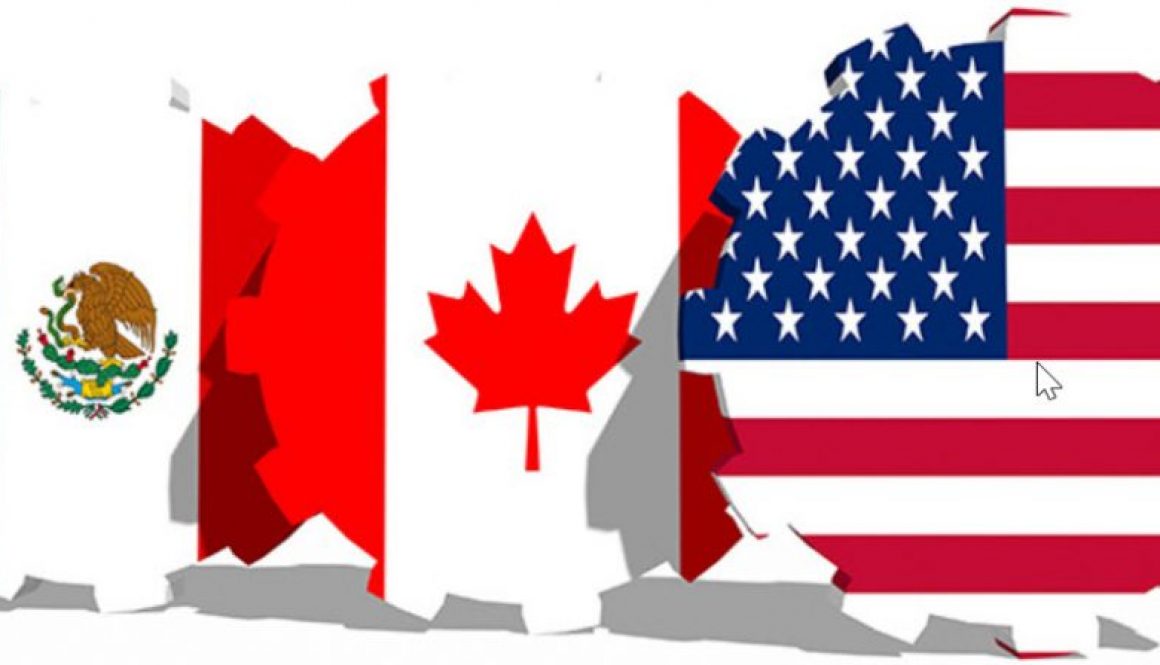NAFTA Renegotiation Discussions
Lately, there has been considerable buzz among executives in North America about NAFTA renegotiation discussions. Scrapping or renegotiating the agreement has been a central campaign promise of incoming US President, Donald Trump, but few decision makers seem enthusiastic about making this a possibility. Who is pushing for NAFTA renegotiation discussions and who is not?
Canada and Mexico Mixed on NAFTA Renegotiation Discussions
The Canadian position has been lackluster but agreeable with following US lead, should the US push for renegotiations. Canadian Prime Minister Justin Trudeau is a staunch proponent of trade, yet he has indicated he would consider NAFTA renegotiations if the US pushed for such an arrangement. He stated that deals should always be open for modernizing in a statement last November:
I think it’s important that we be open to talking about trade deals…If the Americans want to talk about NAFTA, I’m more than happy to talk about it.
Mexico, however, has come right out and opposed the suggestion, allowing only for discussing the merits of the agreement. They would not support formal NAFTA renegotiations in any way. Mexican Economy Minister, Ildefonso Guajardo, recently offered this qualified statement:
We’re ready to talk so we can explain the strategic importance of NAFTA for the region…Here we’re not talking about… renegotiating it, we’re simply talking about dialogue.
Mexico has many reasons to support continued trade with the US under NAFTA.
- Mexico is Latin America’s 2nd largest economy and the gateway between Latin America and the US.
- Nearly 80% of Mexican exports flow directly into the US.
- Mexico is the 3rd largest trading partner with the US with over $530 billion USD in goods exchanged in 2015.
The US Mixed on NAFTA Renegotiations
There is even mixed sentiment over NAFTA renegotiations in the United States. In spite of Donald Trump’s aggressive political rhetoric, and the fear of some Americans that NAFTA has siphoned off US jobs to Mexico, many others disagree. They believe the North American Free Trade Agreement (NAFTA) has made great strides to reduce bureaucratic and tariff challenges small businesses faced when buying and selling abroad. Since it was enacted in 1994, NAFTA has eliminated or reduced virtually all tariffs among Canada, the US, and Mexico. In 2015, the US Congressional Research Service concluded that the overall impact of NAFTA on the US was negligible. Their statement pointed out:
In reality, NAFTA did not cause the huge job losses feared by the critics or the large economic gains predicted by supporters…The net overall effect of NAFTA on the US economy appears to have been relatively modest, primarily because trade with Canada and Mexico accounts for a small percentage of US GDP.
The Americans are divided on whether to push forward with NAFTA renegotiations and upsetting such a complex network of commerce. But even if they push ahead and the Canadians rubber stamp this push, Mexico’s government would not support the action. It is quite possible NAFTA renegotiations will not become a reality for many years or that the US government will instead opt for high-level discussions over renegotiation.
To keep current on NAFTA information feel free to visit our parent company’s website and click on the Blog; http://tecma.com




